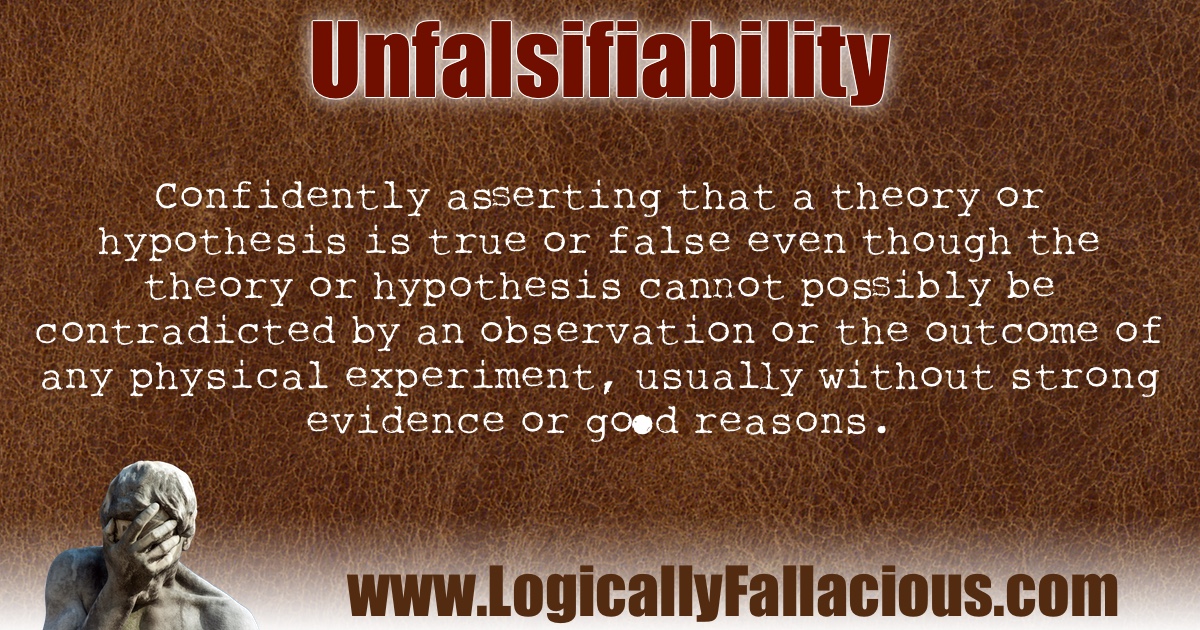(also known as: untestability)
Description: Confidently asserting that a theory or hypothesis is true or false even though the theory or hypothesis cannot possibly be contradicted by an observation or the outcome of any physical experiment, usually without strong evidence or good reasons.
Making unfalsifiable claims is a way to leave the realm of rational discourse, since unfalsifiable claims are often faith-based, and not founded on evidence and reason.
Logical Form:
X is true (when X is cannot possibly be demonstrated to be false)
Example #1:
I have tiny, invisible unicorns living in my anus. Unfortunately, these cannot be detected by any kind of scientific equipment.
Explanation: While it may actually be a fact that tiny, invisible, mythological creatures are occupying this person’s opening at the lower end of the alimentary canal, it is a theory that is constructed so it cannot be falsified in any way; therefore, should not be seriously considered without significant evidence.
Example #2:
Priests can literally turn wine into the blood of Jesus.
Explanation: Surely, we can examine the liquid and see if it at least changes chemically, can we not? No. Because transubstantiation is not about a physical or chemical change, but a change in “substance” -- which, of course, is not a material change and, therefore, impossible to falsify. Furthermore, the claim is not that it “might be” happening, but it certainly is happening, adding to the fallaciousness of the claim. The only evidence for this is some ambiguous verses in the Bible -- so ambiguous that over a billion Christians don’t subscribe to the belief that transubstantiation occurs. So we have unfalsifiability, belief of certainty, and very weak evidence.
Exception: All unfalsifiable claims are not fallacious; they are just unfalsifiable. As long as proper skepticism is retained and proper evidence is given, it could be a legitimate form of reasoning.
Tip: Never assume you must be right simply because you can’t be proven wrong.

Flanagan, O. J. (1991). The Science of the Mind. MIT Press.